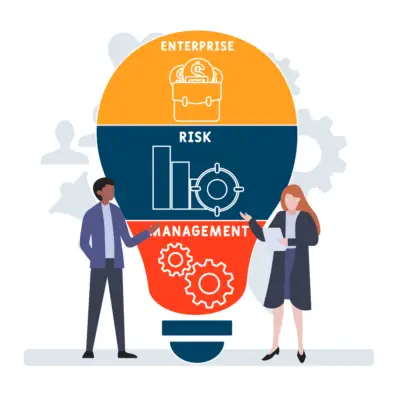The number of projects a project manager should handle at one time can vary greatly depending on several factors:
Project Complexity: More complex projects require more attention and resources. If a project manager is overseeing a highly complex project, they might not be able to manage any other projects at the same time effectively.
Project Size: Larger projects with more team members and larger budgets will generally require more of a project manager’s time than smaller projects.
Project Stage: The stage can also affect how many projects a project manager can handle. For example, during a project’s initiation and closing stages, a project manager might need to devote more time and resources to that project.
Support Resources: The amount of support a project manager has can also affect how many projects they can handle. If a project manager has a strong team or access to additional resources, they might be able to manage more projects at once.
Project Manager’s Experience: More experienced project managers may be able to handle more projects at once than those with less experience.
Industry: Some industries might have more complex or demanding projects than others, affecting how many projects a project manager can handle.
As a general rule, it’s often suggested that a project manager should not handle more than 2-3 projects at a time to ensure they can give each project the attention it deserves. However, this can vary based on the factors listed above.
It’s important for organizations to ensure that project managers are not overloaded with too many projects, as this can lead to decreased productivity and increased risk of project failure.
Project managers have a crucial role in ensuring that projects are completed successfully within time, budget, and scope constraints. They act as leaders who plan, execute and control all aspects of a project.
One of the most important decisions that project managers make is determining how many projects they should handle simultaneously.
The answer to this question depends on project size, complexity, team strength, stakeholder expectations, and available resources.
In this article, we will discuss these factors in detail to provide insights into how project managers can determine the optimal number of projects they can handle while ensuring high-quality deliverables.
We will also explore some best practices for managing multiple projects effectively without compromising quality or deadlines.

Assessing Project Size and Complexity
The assessment of project size and complexity is critical for project managers to determine the appropriate number of projects they can handle effectively. To assess project size, it is essential to accurately measure resources such as budget, workforce, and time constraints.
The manager should also consider the scope and objectives of the project to evaluate its complexity.
Managing stakeholder expectations is another crucial aspect of assessing project size and complexity. Project managers must consider stakeholders’ expectations, including sponsors, customers, team members, and other key players involved in the project.
Ensuring stakeholders’ expectations align with the project’s goals helps prevent misunderstandings and conflicts during the execution phase.
To balance workload effectively, project managers must identify their capacity for handling different types of projects based on their experience and skill set. While some may be proficient in managing large-scale complex projects with extensive resources.
Others may excel at managing several smaller projects simultaneously with fewer resources. Therefore, assessing their capabilities enables them to select suitable projects that align with their strengths while avoiding overburdening themselves or compromising quality standards.
Measuring resources accurately while considering stakeholder expectations is vital when evaluating a project’s size and complexity from a manager’s perspective.
Prioritizing Projects
Prioritization is crucial in ensuring that resources are allocated effectively toward achieving the most important projects. As a project manager, balancing workload and managing stakeholder expectations by prioritizing projects is essential.
Prioritization helps determine which project requires immediate attention and which can be delayed or delegated.
To prioritize projects, it is necessary first to identify each project’s goals and their impact on business objectives. Once these factors are determined, allocate resources based on criticality and urgency.
It is important to involve stakeholders in the decision-making process as their input can provide valuable insights into the priority of each project. Managing stakeholder expectations is another critical aspect when prioritizing projects.
Communicating with stakeholders about why certain projects are prioritized over others will help set expectations and avoid misunderstandings.
Involving stakeholders in the prioritization process will also help create buy-in from them, thereby increasing support for current and future projects. Effective prioritization ensures that resources are allocated efficiently towards achieving business objectives while balancing workload and managing stakeholder expectations.
Project managers should systematically prioritize projects based on criticality, urgency, and impact on business objectives while involving stakeholders in the decision-making process.
Building a Strong Team
Building a strong team is an essential component of successful project management, requiring careful consideration of individual strengths and weaknesses to ensure optimal performance.
The hiring process plays a crucial role in assembling the right team. Project managers should cast their nets wide and attract candidates with diverse backgrounds and skill sets.
A mix of personalities, perspectives, and expertise can create a dynamic workforce tackling various challenges.
Team communication is another critical factor in building a robust project team. Effective communication allows members to share ideas, resolve conflicts, build trust, and maintain focus on the project goals.
Project managers should establish clear lines of communication from the outset by setting up regular meetings or using collaboration tools such as Slack or Asana.
Additionally, it’s vital to encourage open dialogue among team members while providing feedback that can help improve performance.
Building a strong project team requires attention to detail during the hiring process and establishing effective communication channels throughout the project lifecycle.
By selecting individuals based on their unique skills and experiences while promoting open dialogue among them, project managers can foster an environment where teams feel valued and motivated to achieve success together.
Utilizing Project Management Tools
The success of a project relies heavily on the effective utilization of project management tools. Implementing efficient project management strategies, leveraging technology to streamline processes, and tracking progress are essential to achieving this goal.
By identifying areas for improvement along the way, project managers can make necessary adjustments and ensure that their projects remain on track toward meeting their objectives.
Implementing Efficient Project Management Strategies
Optimizing project management strategies involves using various tools, techniques, and methodologies to streamline processes and enhance efficiency. One way to achieve this is by improving communication within the team.
Effective communication ensures that everyone involved in the project understands their roles and responsibilities, deadlines, and what is expected of them. It also allows for quick resolution of any issues or conflicts arising during the project’s lifespan.
Another way to optimize project management strategies is by delegating tasks effectively. This means assigning tasks based on each team member’s strengths, skills, and experience to ensure they are completed efficiently and effectively.
It also involves regularly monitoring progress to ensure everyone stays on track with their assigned tasks.
Delegating tasks effectively, project managers can free up time to focus on other critical aspects of the project while ensuring that every team member contributes meaningfully towards its successful completion.
Leveraging Technology to Streamline Processes
Utilizing technology can streamline project management processes and enhance efficiency by automating tasks, providing real-time data analysis, and facilitating remote collaboration.
Project managers can maximize efficiency by leveraging various software tools to optimize workflows. For instance, project management software like Asana or Trello can automate task assignments, track progress, and facilitate communication among team members.
Additionally, cloud-based solutions like Google Drive or Dropbox allow team members to access documents remotely from anywhere in the world.
This provides flexibility that enables collaboration even when working from different locations.
Utilizing these technological tools effectively, project managers can reduce time spent on administrative tasks and focus more on strategic planning for their projects.
Tracking Progress and Identifying Areas for Improvement
To enhance project outcomes, tracking progress and identifying areas for improvement is a crucial aspect of project management. This involves using project tracking tools to monitor the progress of tasks, identify potential roadblocks, and adjust plans accordingly.
These tools provide real-time updates on the status of each task, allowing project managers to identify and resolve issues promptly.
In addition to project tracking tools, effective team communication strategies are critical in tracking progress and identifying areas for improvement. Project managers must establish clear lines of communication with team members to ensure everyone is aware of their roles and responsibilities.
Encouraging open dialogue among team members can help foster collaboration and keep everyone aligned toward common goals.
Project managers can leverage technology for tracking progress alongside effective team communication strategies to increase their chances of successful completion while delivering high-quality results within deadlines.
Managing Multiple Projects Successfully
Successfully managing multiple projects requires a systematic approach that involves effective planning, delegation, and communication.
Effective delegation is one of the most important skills for project managers juggling multiple projects simultaneously. This skill enables them to assign tasks to team members with the necessary skills and experience to complete them efficiently.
The delegation also frees up time for project managers to focus on other critical activities, such as identifying potential risks and ensuring that all project timelines are met.
Time management is another essential skill when managing multiple projects successfully. Project managers must be able to prioritize their workload and identify which tasks need immediate attention versus those that can wait. They should also establish clear deadlines for each task, communicate them with team members, and ensure they are met.
Finally, communication is critical in ensuring that all team members know their roles and responsibilities in each project they are working on. Project managers must maintain open lines of communication with all team members and provide regular updates on progress.
Identify any issues or challenges that arise along the way, and work collaboratively with everyone involved to find solutions quickly. By doing so, they can ensure that each project runs smoothly while still achieving its goals within the specified timeline and budget allocated for it.

Frequently Asked Questions
How do you handle conflicts between multiple projects with conflicting timelines or priorities?
Effective time management and prioritization skills are essential for handling conflicts between multiple projects with conflicting timelines or priorities.
As a project manager, it is crucial to identify the most critical tasks and allocate resources to ensure successful project completion.
What strategies can a project manager use to ensure effective communication and collaboration between team members?
Effective communication and collaborative strategies are crucial for project management success. Regular team meetings, clear communication channels, and active listening can foster collaboration and ensure team members work towards a common goal.
How do you determine the appropriate level of detail for project documentation and reporting?
Determining the appropriate level of detail for project documentation and reporting requires consideration of the project’s complexity, stakeholder needs, and reporting frequency.
It is essential to balance providing comprehensive information and avoiding overwhelming stakeholders with unnecessary details.
What steps can a project manager take to mitigate risks and handle unexpected obstacles during a project?
To mitigate risks and handle unexpected obstacles during a project, project managers can employ risk identification techniques to anticipate potential issues and develop contingency plans.
These plans should outline specific actions to be taken in response to various scenarios, minimizing negative impacts on the project.
How do you balance stakeholders’ needs and expectations with a project’s resources and constraints?
Effective stakeholder management balances their needs and expectations with project resources and constraints.
Resource allocation should be guided by project objectives, risk assessments, and stakeholder communication to ensure optimal outcomes within available resources.

Conclusion
Project management is a complex and demanding field, requiring professionals to juggle multiple projects simultaneously while ensuring each project is completed on time and within budget.
To successfully manage multiple projects, project managers must assess the size and complexity of each project, prioritize tasks, build strong teams, and utilize project management tools effectively.
Assessing the size and complexity of a project is crucial in determining how many projects a project manager can handle simultaneously. Understanding the scope of a project helps managers identify potential risks and challenges that may arise throughout the project.
Prioritizing tasks based on importance ensures that critical tasks are completed first, reducing the risk of delays or cost overruns.
Building a strong team is also key to managing multiple projects successfully. Project managers must ensure their team members have the necessary skills and expertise to complete assigned tasks efficiently.
Effective communication among team members plays an important role in ensuring all stakeholders are informed about progress, challenges, and any changes in direction.
Utilizing project management tools can help streamline processes and enhance productivity. Gantt charts, agile frameworks, or task management software can help managers track real-time progress across multiple projects.
There is no exact number of projects a project manager should handle as it depends on various factors such as size, complexity, and resources available for each assignment.
However, by assessing individual assignments’ needs correctly, prioritizing them, implementing effective communication strategies with relevant stakeholders, building strong teams, and utilizing appropriate tools when needed, successful delivery becomes achievable even with managing several assignments simultaneously.

Chris Ekai is a Risk Management expert with over 10 years of experience in the field. He has a Master’s(MSc) degree in Risk Management from University of Portsmouth and is a CPA and Finance professional. He currently works as a Content Manager at Risk Publishing, writing about Enterprise Risk Management, Business Continuity Management and Project Management.

